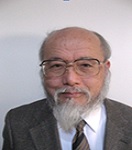
Masahiro Yoshimura
National Cheng Kung University, Taiwan
Title: Importance of soft processing(=Low-Energy Production) of advanced inorganic Materials for sustainable society
Biography
Biography: Masahiro Yoshimura
Abstract
As well as organic and/or bio- materials, advanced inorganic materials, most of metallurgical materials, semiconductors and ceramic materials are importanr, but they have never been produced in natural biological systems. Thus they have generally been fabricated artificially and/or industrially by so-called high-technology, where high temperature, high pressure, vacuum, molecule, atom, ion, plasma, etc. giving environmental impacts, particularly for nanostructured advanced inorganic (ceramics) materials.rnConsidering the lowering of total energy consumption, we have challenged to fabricate those advanced inorganic materials with desired shape/size/location, etc. directly in low energetic routes using aqueous solutions since 1989 when we found a method to fabricate BaTiO3 film on Ti substrate in a Ba(OH)2 solution by Hydrothermal Electrochemical[HEC] method at low temperatures of 60-200 C. We proposed in 1995 an innovative concept and technology, “Soft Processing” or “Soft Solution Processing,” which aims low energetic (=environmentally friendly) fabrication of shaped, sized, located, and oriented inorganic materials in/from solutions. When we have activated/stimulated interfacial reactions locally and/or moved the reaction point dynamically, we can get patterned ceramic films directly in solution without any firing, printing, masking nor etching.  We have succeeded Direct Patterning of CdS, PbS and CaWO4 on papers by Ink-Jet Reaction method, furthermore, to fabricate BaTiO3 patterns on Ti by a laser beam scanning and carbon patterns on Si by a needle electrode scanning directly in solutions. TiO2 and CeO2 patterns by Ink-Jet Deposition, where nano-particles are nucleated and grown successively on the surface of substrate thus become dense even below 300 C will be presented. 2D and 3D Nano-structured films will be also talked. A recent novel subject, Soft Processing for various nano-carbons including Graphene and functionalized Graphene, will be introduced. rn

